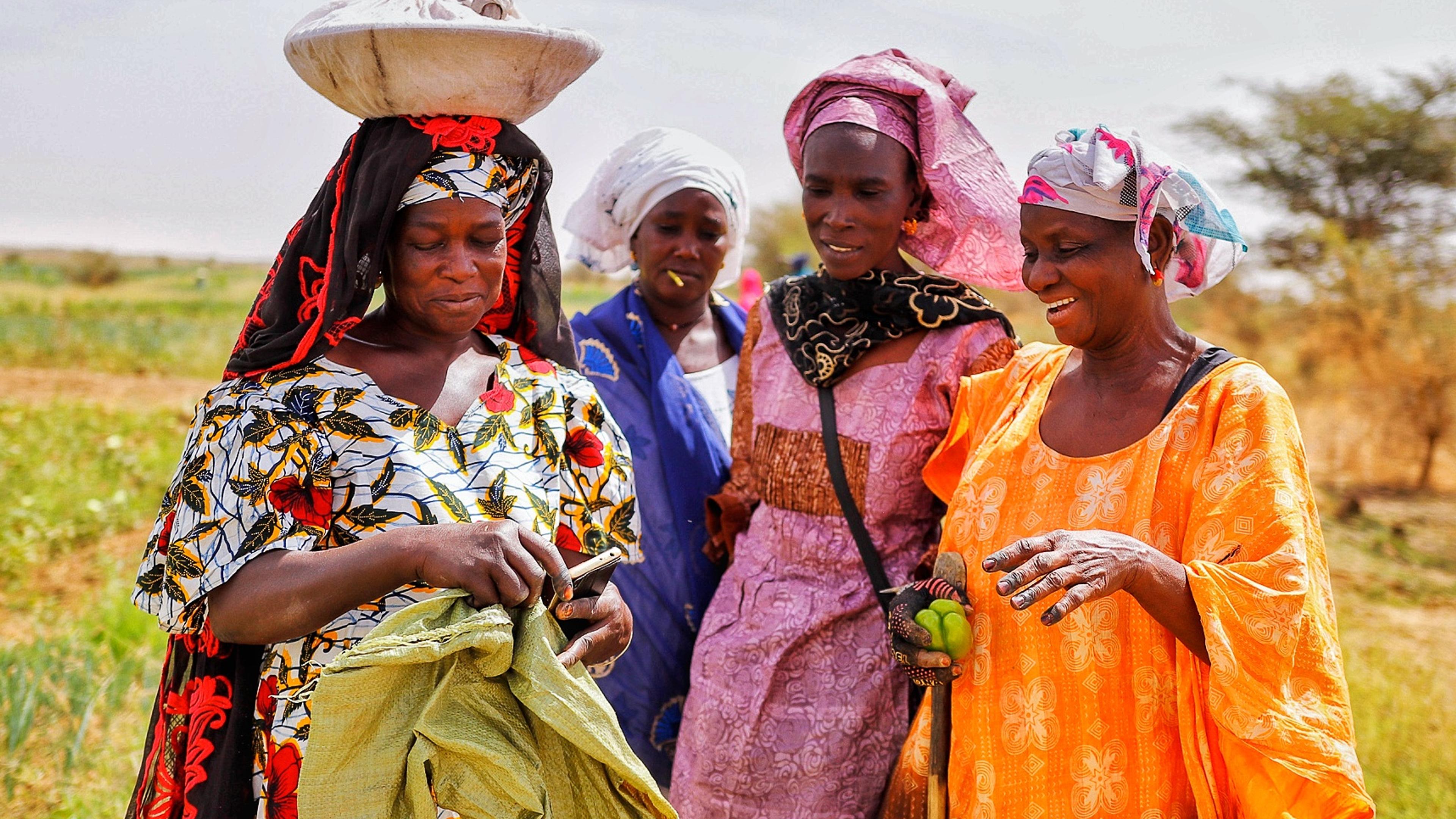Improving women smallholder farmers' resilience against natural disasters
 © UN Women
© UN WomenWhat is the humanitarian challenge?
Smallholder farmers supply 80% of overall food produced in Asia, sub-Saharan Africa, and Latin America. With limited access to resources, infrastructure, and knowledge, smallholder farmers are on the front-line of being challenged by the impact of natural disasters and climate change, resulting in recurrent loss of livelihoods and a disaster-triggered spiral of vulnerability and poverty. Women smallholder farmers are even more exposed to these shocks; yet their specific needs and perspectives are often neglected by existing resilience building mechanisms. Innovation and digital technology have the potential to address these needs but are often adopted through a gender-blind approach, leading to missed opportunities, exacerbating gender gaps, and failing to reach those most in need.
What is innovative about this project?
This project seeks to leverage the opportunities in humanitarian-private partnerships to tackle the persisting gender gaps in access to resilience building mechanisms. The project will also address the unmet needs faced by rural women and strengthen their access to gender-sensitive resilience building mechanisms in the pilot countries Mali and Senegal. As part of its work to leverage digital technology for women’s empowerment, UN Women has developed the ‘Buy from Women’ (BfW) initiative, to develop a set of open-sourced web and mobile platforms to digitise women smallholder farmers’ businesses and provide them with better access to information, market, and finance. UN Women now aims to enhance the scope of the BfW initiative by integrating resilience building tools to improve rural women’s access to risk reduction and risk transfer mechanisms, like mobile enabled disaster insurance and early warnings.
What are the expected outcomes?
Through the project, women smallholder farmers in Mali and Senegal will have improved access to resilience-building technologies and services, with a focus on mobile-enabled microinsurance solutions, financial literacy, climate services and early warning systems that are tailored to their specific needs. In Mali, the project will allow to better protect women smallholders against drought and flood risks, by developing new crop insurance products for women-dominated value chains, bundled offers to facilitate access to credit and weather alerts, tailoring delivery and distribution modes to the women’s needs, and reinforcing the women’s financial skills. In Senegal, the project will allow increasing adoption of agriculture insurance among women smallholders, by codeveloping mobile-enabled, voice-based educational games and remote trainings to strengthen their skills and by facilitating access to existing products by directly linking them via mobile to insurance suppliers.
Who are the project partners?
The project is led by UN Women together with UNCDF (the United Nations Capital Development Fund), in collaboration with their research and technical partner WRMS (Weather Risk Management Services), as well as micro-insurance start-up OKO and mobile engagement and communication company Viamo, which were selected to lead the project implementation in Mali and Senegal.